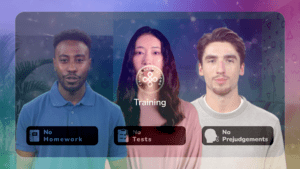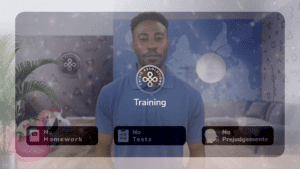How to develop a positive mindset and attitude that can help us face difficulties with courage and optimism.
Narrative
Welcome to the first episode of our podcast about crisis resolutions through the practice of good ways and without prejudgements. I’m your host, and today we’re going to talk about flexibility of character.
What is flexibility of character? It’s the ability to adapt to changing circumstances and cope with challenges in a positive and constructive way. It’s also the willingness to learn from others and appreciate different perspectives. Flexibility of character can help us face difficulties with courage and optimism, instead of being rigid, defensive or pessimistic.
Why is flexibility of character important for crisis resolution? Because crises are unpredictable, complex and stressful situations that require quick and effective responses. Crises can also trigger strong emotions, such as fear, anger or guilt, that can cloud our judgment and impair our communication. If we are flexible in our character, we can manage our emotions better, avoid escalating tensions with threats or provocative moves, overcome an us, versus them mentality and find creative solutions that benefit everyone involved.
How can we develop flexibility of character? Here are some tips based on research and best practices:
- Identify risks. Good crisis management starts with anticipation of risks that a company may face. By being aware of potential threats and vulnerabilities, we can prepare ourselves mentally and emotionally for dealing with them if they arise.
- Define an action plan. Having a clear plan for how to respond to a crisis can reduce uncertainty and anxiety. A good action plan should include roles and responsibilities, communication channels, resources and contingency measures.
- Establish a crisis unit. A crisis unit is a team of people who are responsible for handling the crisis. The members of the crisis unit should have relevant skills, experience and authority to make decisions. They should also have trust and respect for each other, as well as a shared vision and goal.
- Define messages to transmit. The messages that are transmitted during a crisis should reflect the values and principles of the organization. They should also acknowledge the problem, express empathy for those affected, explain what actions are being taken and what outcomes are expected.
- Prepare for crisis management by making time, energy, and attention available. Prioritize tasks based on their urgency and importance, delegate responsibilities whenever possible, and take breaks when necessary.
- Maintain a positive attitude during a crisis to cope better with stress and motivate those around us. Focus on what can be controlled, recognize strengths, and celebrate small wins.
These are some ways to develop a flexible character that can help us effectively and efficiently resolve crises.




